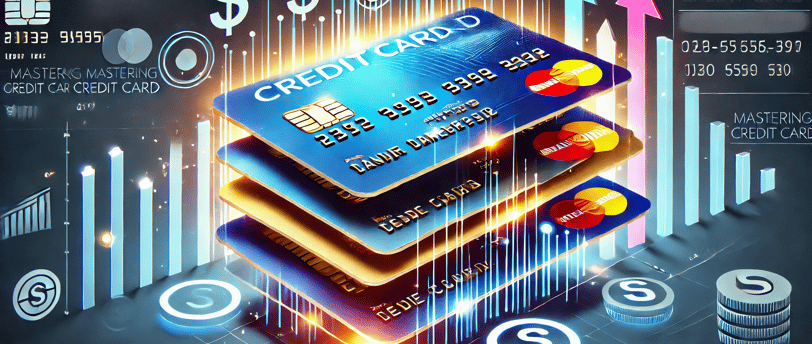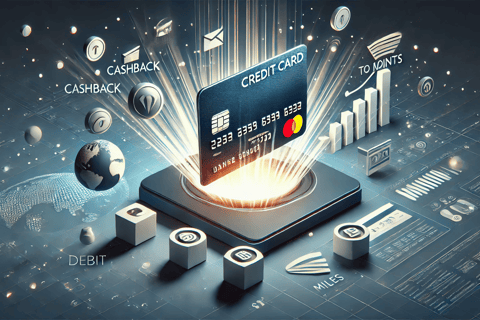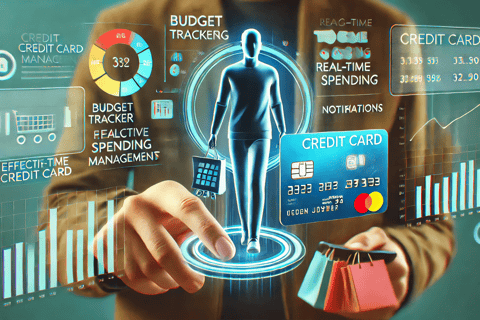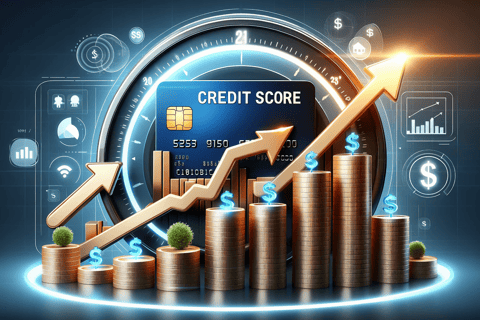Mastering Credit Cards: From Responsible Use to Strategic Credit Score Boosting
Unlock the full potential of your credit cards with our comprehensive guide. Learn how to transition from responsible credit card use to advanced strategies for boosting your credit score and achieving financial success.
8/12/20245 min read


Credit cards can be powerful financial tools when used wisely, offering a range of benefits from cashback rewards to the potential for boosting your credit score. However, the journey from a debit card user to a strategic credit card user requires more than just a swipe—it demands a shift in mindset and the adoption of smart financial habits. Whether you're new to credit cards and looking to understand the basics, or you're an experienced user aiming to optimize your credit score, mastering the art of credit card management is essential.
This comprehensive guide will walk you through the essentials of responsible credit card use and introduce advanced strategies to help you leverage your credit cards for maximum financial gain. By combining the foundational principles of smart spending with tactical approaches to credit management, you can unlock the full potential of your credit cards and set yourself up for long-term financial success.
Section 1: The Basics of Credit Card Usage
1. Understanding Credit vs. Debit
Credit and debit cards might look similar, but they function very differently. A debit card pulls funds directly from your bank account, meaning once you swipe, that money is gone instantly. Credit cards, however, allow you to borrow money up to a certain limit and pay it back later, often with rewards and protections that debit cards don’t offer.
Key Benefits of Credit Cards:
Purchase Protection: Many credit cards offer protection on purchases, including extended warranties and fraud protection.
Building Credit: Using a credit card responsibly helps build your credit history, which is crucial for securing loans and favorable interest rates.
Rewards: Cashback, points, and miles are common rewards that can provide significant value, effectively making your purchases cheaper or funding future expenses.
2. Developing the Right Mindset
One of the biggest barriers to effective credit card use is the fear of debt. While it’s true that irresponsible credit card use can lead to financial trouble, the key is to view credit cards as tools for financial growth rather than as threats.
Key Rules for Responsible Credit Card Use:
Never Spend More Than You Can Pay Off in One Month: This ensures you avoid interest charges and keep your debt under control.
Always Pay the Full Balance: By paying your balance in full each month, you avoid interest and demonstrate good credit management.
Section 2: Transitioning from Debit to Credit Cards
1. Making the Switch
If you’re used to relying on a debit card, switching to a credit card requires careful planning. Start by using your credit card for small, everyday purchases—things you would normally buy with your debit card.
Steps for a Smooth Transition:
Set a Budget: Treat your credit card like a debit card by only spending what you can afford to pay off each month.
Track Spending: Use your credit card’s online tools or apps to monitor your spending in real-time.
2. Building Good Credit Habits
Developing good habits early on can prevent future financial headaches. One of the most important habits is keeping track of your credit card balances and making sure you pay them off each month.
Essential Credit Habits:
Monitor Your Balances Regularly: Check your credit card statements and online accounts frequently to stay on top of your spending.
Automate Payments: Set up automatic payments to ensure you never miss a due date, which helps maintain a good credit score.
Section 3: Advanced Strategies for Boosting Your Credit Score
1. Understanding Credit Card Reporting
Your credit card issuer reports your balance to the credit bureaus once a month, usually around your statement closing date. Understanding this cycle is key to managing your credit score.
Key Dates to Know:
Due Date: The date by which you must make at least your minimum payment.
Reporting Date: The date your credit card issuer reports your balance to the credit bureaus. Aim to have a low balance on this date to positively impact your credit score.
2. Maximizing Credit Utilization
Credit utilization—the percentage of your credit limit that you’re using—is a major factor in your credit score. Keeping this below 30% is generally recommended.
Strategies to Manage Credit Utilization:
Pay Down Balances Before the Reporting Date: Make payments before your reporting date to lower your reported balance.
Rotate Credit Cards: Use multiple credit cards to spread out your spending, keeping each card’s utilization low.
3. Leveraging Credit Card Rewards
Credit card rewards can offer significant value, but only if they align with your spending habits. Choose cards that offer the best rewards for your lifestyle, whether it’s cashback, points, or travel miles.
Tips for Maximizing Rewards:
Choose the Right Card: Select a card that offers high rewards in categories where you spend the most.
Redeem Wisely: Use cashback to pay down balances or save points and miles for high-value redemptions like travel.
Section 4: Integrating Strategies for Long-Term Success
1. Combining Responsible Use with Strategic Boosting
Successfully managing credit cards involves balancing the basics of responsible use with more advanced credit score strategies.
A Balanced Approach:
Stick to the Basics: Always pay your balances in full and keep utilization low.
Incorporate Advanced Tactics: Time your payments and monitor your credit reports to ensure your score reflects your good habits.
2. Preparing for Major Financial Goals
Whether you’re planning to buy a house, finance a car, or qualify for better loan terms, maintaining a strong credit score is crucial.
Steps to Prepare:
Set Clear Goals: Understand how your credit score impacts major financial decisions.
Monitor Your Progress: Regularly review your credit report and adjust your strategies as needed.
Conclusion
Mastering credit cards requires both a solid understanding of the basics and a willingness to apply advanced strategies for optimizing your credit score. By combining responsible credit card use with smart financial tactics, you can unlock the full potential of your credit cards, improve your financial health, and achieve your long-term goals. Start by evaluating your current habits and gradually incorporating these strategies to take control of your financial future.








Change Lives
Supporting charitable organizations, providing assistance to children worldwide.
703-678-7628
© BRC Holy Trust 2024
